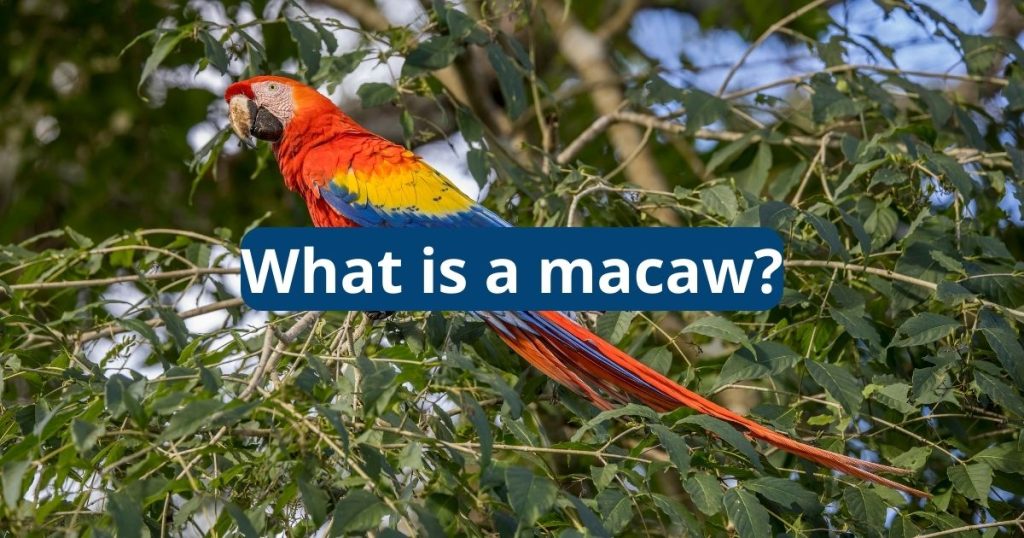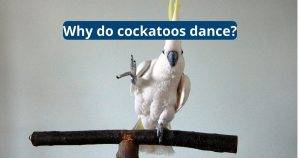What is a Macaw?

Macaws are stunningly beautiful, with brilliant plumage and colors that blend well in the Amazon jungle’s green canopies. They have long, graceful tails and powerful beaks that crack nuts with ease. Most species of macaw are endemic to Central and South America, but their popularity in the pet trade means many of them are becoming endangered. Deforestation and land clearing also threaten their numbers.
They’re loud
Macaws are well-known for their ability to mimic speech and other noises. In captivity, they can learn specific words to repeat and even use accents. They have a highly developed vocal learning centre. In the wild, they communicate with each other using very specific sounds and often group together in large flocks.
In addition to clicking and grinding their beaks, Macaws also sway their heads when they are content or playing. However, if this is accompanied by flapping wings, dilated pupils or aggressive behavior, it is a warning to back off.
Macaws need lots of social interaction to keep them happy. Isolating them in a room and only spending a few hours per day with them will lead to them becoming frustrated and destructive. Providing plenty of chew toys and cardboard to shred will decrease this risk. Also, make sure your macaw is healthy as loudness can be a sign of illness. If they are exhibiting this behaviour, you should contact your vet for advice.

They’re beautiful
Macaws are exotic-looking birds that have vibrant plumage to complement their Central and South American rainforest homes. Their large beaks are adapted for cracking open nuts and seeds, while their strong toes serve as gripping tools. Their wings are long and able to give them the lift they need to soar through their rainforest homes.
Like most parrots, macaws can learn to mimic human speech and are known for their ability to sing. Often, they will bond with one person and prefer to speak only to this individual. They may cuddle with their owner or another bird in their family but are unlikely to get physically affectionate with strangers.
In the wild, macaws can live up to 80 years, though many will outlive their owners if kept as pets. Their lifespan is influenced by the amount of care and attention they receive from their owners, which means that you should consider carefully whether this is the right pet for you.

They’re social
Macaws are highly gregarious creatures, flocking together in the wild and spending their nights in roosting trees. In the wild, these parrots’ loud calls, squawks and other distinctive vocalizations are used to mark territory, communicate with the rest of the flock and even to identify partners.
These birds are also famous for their ability to imitate human speech and have a highly-developed vocal learning center in their brain. Captive macaws that live with humans can even learn to repeat words they hear, practicing them until they get them just right.
In the wild, macaws are monogamous and lay their eggs in nests inside trees or on cliff sides. They display various behavioral cues to communicate with other members of their group, such as eye pinning which signals feeling threatened or protecting territory and head bobbing which means the bird is content and playful. Wing movements can be a form of communication as well, with fans showing dominance and fluttering wings signifying submission.

They’re intelligent
Macaws are one of the smartest birds on the planet, capable of learning and mimicking sounds. In fact, they have been known to replicate human speech. They are also able to identify different voices and accents.
In the wild, they use loud calls to communicate with other members of their flock and mark their territory. This can be quite earsplitting for humans! They are also able to imitate other sounds, including bells and horns.
While they don’t learn words as quickly as other parrots, they do tend to remember them for the rest of their lives. They are very intelligent creatures, and can often open locks.
To keep them mentally stimulated, it is recommended to train them regularly. This can be done by talking with them and repeating certain words each day until they learn them. This will keep them active and help prevent boredom which can lead to undesirable behaviors such as shrieking and feather picking.



